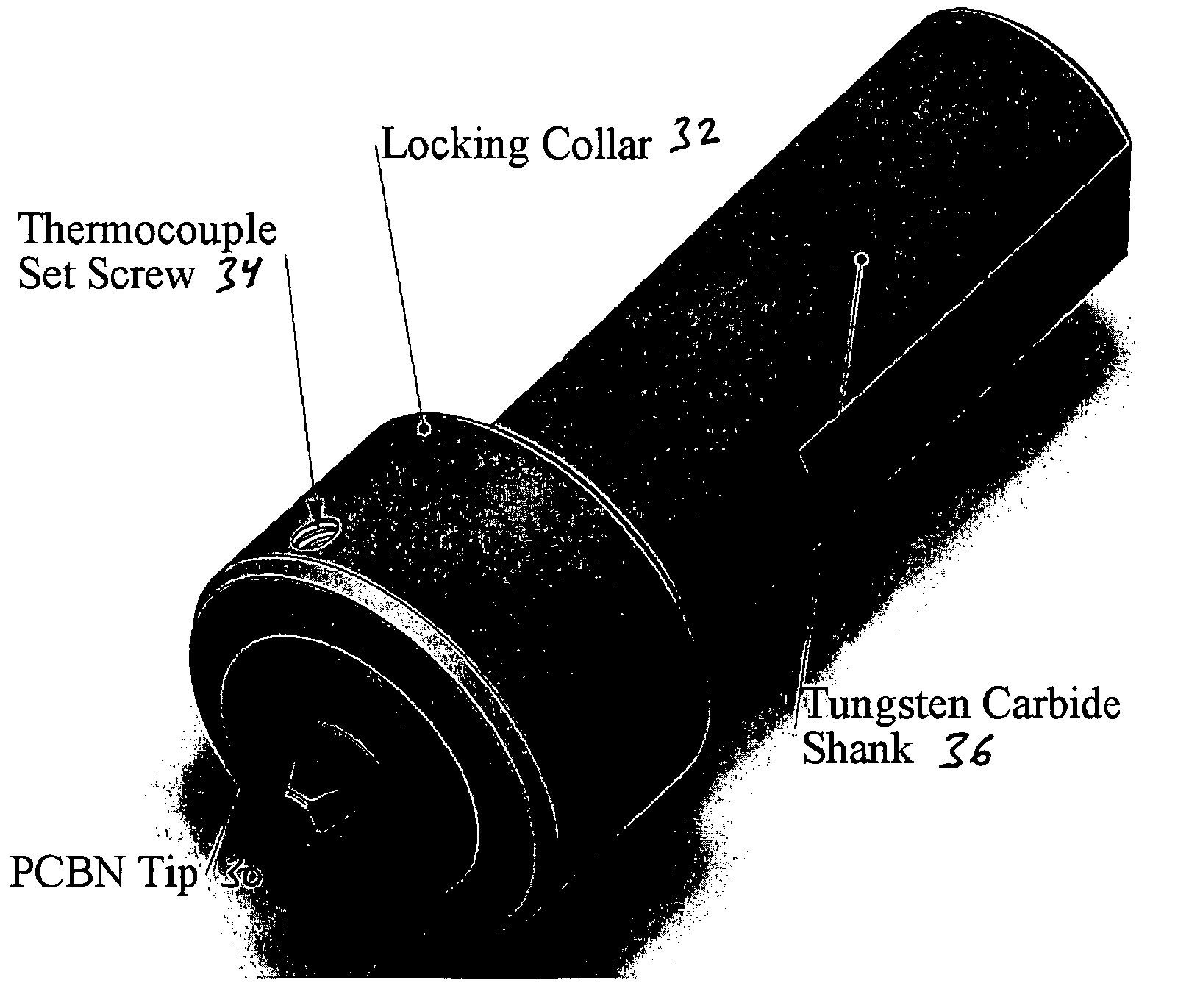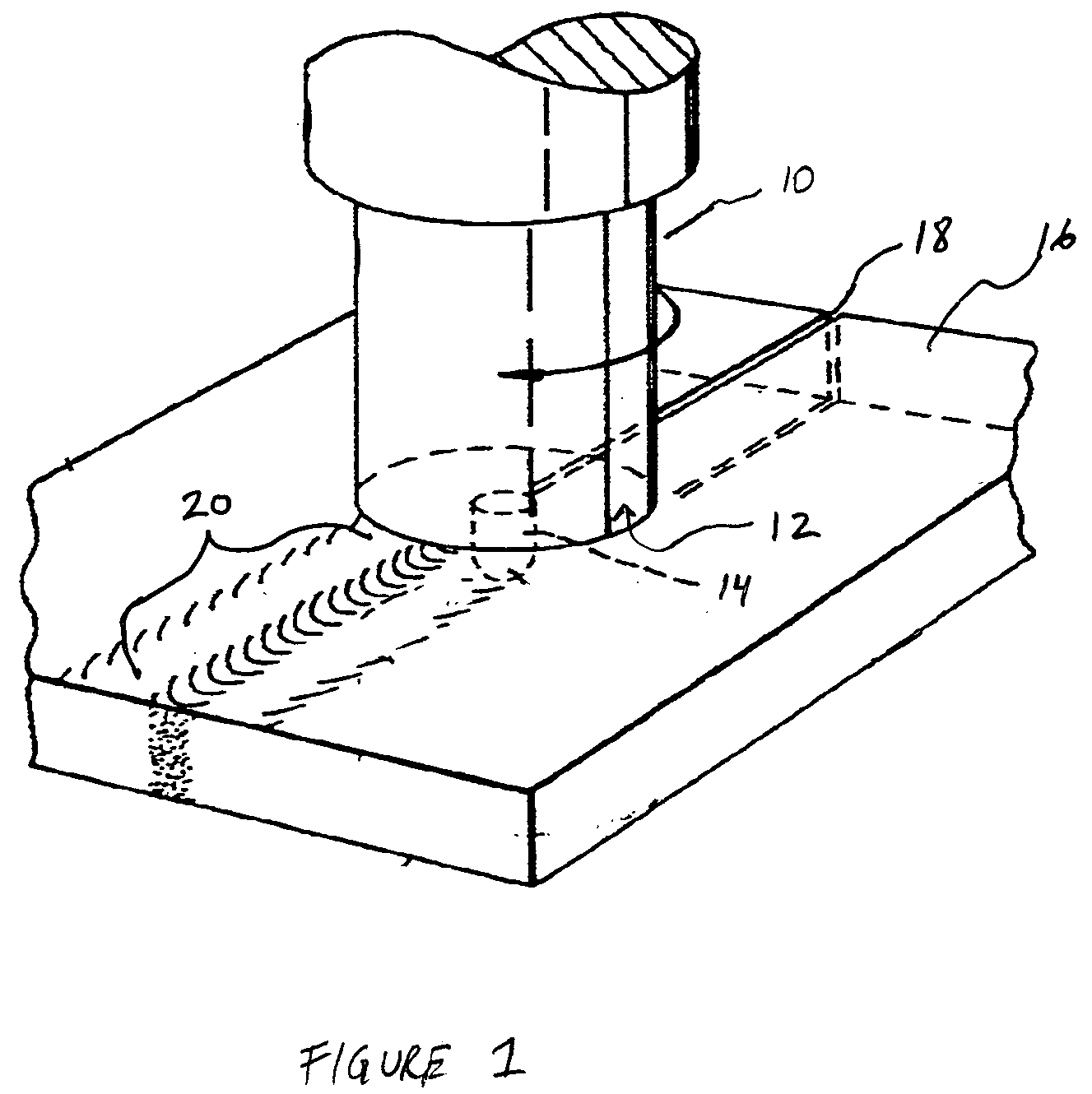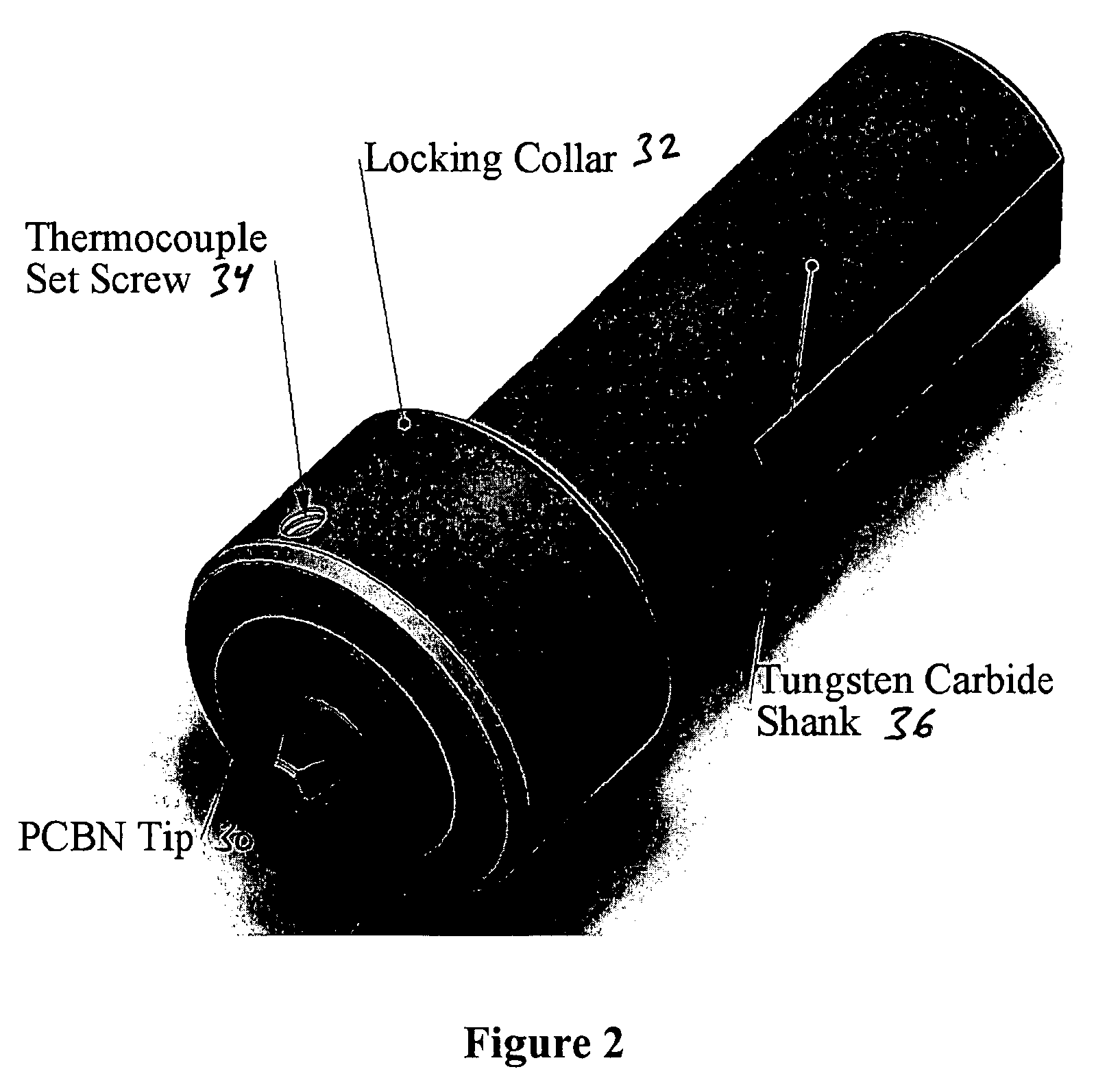Solid state processing of materials through friction stir processing and friction stir mixing
a technology of friction stir and solid state processing, which is applied in the direction of manufacturing tools, soldering devices, auxillary welding devices, etc., can solve the problems of non-fusion weldability, difficult to weld at all, and plasticization of material on either side of the joint, so as to increase or decrease the hard improve the toughness of the workpi
- Summary
- Abstract
- Description
- Claims
- Application Information
AI Technical Summary
Benefits of technology
Problems solved by technology
Method used
Image
Examples
Embodiment Construction
[0058] Reference will now be made to the drawings in which the various elements of embodiments of the present invention will be given numerical designations and in which the invention will be discussed so as to enable one skilled in the art to make and use the embodiments. It is to be understood that the following description is only exemplary of the principles of the present invention, and should not be viewed as narrowing the claims which follow.
[0059] The present invention as explained hereinafter will apply to several different classes of materials. In one embodiment, the materials may be considered to be those materials that have melting temperatures higher than bronze and aluminum as previously disclosed. This class of materials includes, but is not limited to, metal matrix composites, ferrous alloys such as steel and stainless steel, non-ferrous materials, superalloys, titanium, cobalt alloys typically used for hard-facing, and air hardened or high speed steels. In another e...
PUM
| Property | Measurement | Unit |
|---|---|---|
| Grain size | aaaaa | aaaaa |
| Density | aaaaa | aaaaa |
| Microstructure | aaaaa | aaaaa |
Abstract
Description
Claims
Application Information
 Login to View More
Login to View More - R&D
- Intellectual Property
- Life Sciences
- Materials
- Tech Scout
- Unparalleled Data Quality
- Higher Quality Content
- 60% Fewer Hallucinations
Browse by: Latest US Patents, China's latest patents, Technical Efficacy Thesaurus, Application Domain, Technology Topic, Popular Technical Reports.
© 2025 PatSnap. All rights reserved.Legal|Privacy policy|Modern Slavery Act Transparency Statement|Sitemap|About US| Contact US: help@patsnap.com



